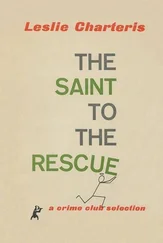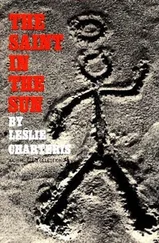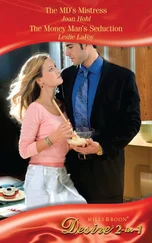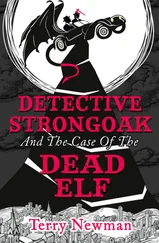Everything would be exactly as it had been in Vietnam; they would bury and sandbag mortar and missile launchers and dig underground bunkers for protection from counterattacks. The catch was that when Veterans Day festivities were over, a few of the homeless vets would continue to occupy the model firebases. Roy was realistic. Not every city in the U.S. was sentimental and guilty about homeless war veterans, but Roy figured most cities would not bother to evict the homeless veterans from their model firebases once Veterans Day had passed. The ploy was a long shot. They had no mortar shells or little missiles, and there was no guarantee they’d be able to get any, but the Hopi had some promising leads. Still, firebases manned by a few vets and the young would-be’s could draw fire from the police and military and buy time for the prison uprising and the rioters in the cities. The Barefoot Hopi’s plan depended upon coordination and timing. Ideally, just as the Florida State electric chair was about to be used, the eco-warriors would conduct their “simultaneous hit” on significant interstate power-transmission lines and power generators. The Hopi had dreamed that when the warden threw the switch, the lights would go out and the condemned man would be unharmed, then prison and jail inmates would begin their riots. Emergency generators had fuel for at most seventy-two hours.
The night the lights went out and didn’t come back on, the tables would turn. The poorest, those living on the street or in the arroyo, they would laugh at the others because the homeless and poor lived everyday without electricity or running water. Turn out the lights and the police had no computers, no files, no names, no spy cameras, and police radios went dead. As Wilson Weasel Tail had pointed out, the Lakota, Cheyenne, Crow, Hidatsa, as well as the Navajo and Apache — none of their people depended much on electricity. The same for the Eskimos. But they all had weapons and they all were ready to fight. Because if they didn’t fight, they would be destroyed and Mother Earth with them.
Poor Engels and Marx! Angelita La Escapía had to smile at the two old white men who had waited and waited, year after year, for the successful revolution until their time ran out. They had been close, but they hadn’t quite got it. They had been on the right track with their readings on Native American communal economies and cultures. For Europeans, they had been far ahead of their time; they had been close, but they still hadn’t got it quite right. They had not understood that the earth was mother to all beings, and they had not understood anything about the spirit beings. But at least Engels and Marx had understood the earth belongs to no one. No human, individuals or corporations, no cartel of nations, could “own” the earth; it was the earth who possessed the humans and it was the earth who disposed of them.
Now it was up to the poorest tribal people and survivors of European genocide to show the remaining humans how all could share and live together on earth, ravished as she was. Angelita La Escapía was confident. All hell was going to break loose. The best was yet to come.
SMOOTH SAILING
 LEAH BLUE SAW only smooth sailing once Judge Arne had dismissed the last of the injunctions and lawsuits to stop her from pumping her deep-water wells. Leah’s lawyers had argued that since the U.S. banking collapse and the crash of Arizona land prices, Arizona had been losing population. Of course the political turmoil in Mexico and the thousands of refugees massed along the border had not helped. Leah’s lawyers maintained that Arizona’s loss of population as well as the shutdown of the copper industry had suddenly changed the entire outlook for water resources in Arizona. Water was plentiful, expert witnesses had testified for Leah Blue. Of course the environmentalists and the Indians had brought in their own experts, who had testified that Leah Blue’s deep wells would destroy shallow wells throughout the valley. Leah Blue had got a kick out of watching Judge Arne pretend to weigh both arguments.
LEAH BLUE SAW only smooth sailing once Judge Arne had dismissed the last of the injunctions and lawsuits to stop her from pumping her deep-water wells. Leah’s lawyers had argued that since the U.S. banking collapse and the crash of Arizona land prices, Arizona had been losing population. Of course the political turmoil in Mexico and the thousands of refugees massed along the border had not helped. Leah’s lawyers maintained that Arizona’s loss of population as well as the shutdown of the copper industry had suddenly changed the entire outlook for water resources in Arizona. Water was plentiful, expert witnesses had testified for Leah Blue. Of course the environmentalists and the Indians had brought in their own experts, who had testified that Leah Blue’s deep wells would destroy shallow wells throughout the valley. Leah Blue had got a kick out of watching Judge Arne pretend to weigh both arguments.
As for the trouble between the Tucson police and Sonny and Bingo, Leah felt confident the senator could clear up any misunderstandings. Everything was coming up roses. Preliminary estimates showed that construction costs had plummeted because so many skilled workers were unemployed. Leah had paid next to nothing for the land because it had been worthless without water. Every morning Leah drove to the wellheads. She was pleased to see the security service had assigned four armed guards in the day as well as at night. Terrorist ecologists had made threats to dynamite the deep wells, and to fill them in with concrete.
Leah had a way with the construction foremen and crews that was friendly but distant, and she liked things that way. She liked to step on the concrete pedestal at the deep wellhead, to gaze out over the brownish desert shrubs and grayish desert gravel and visualize the sleek, low villas of pale marble with red bougainvilleas and even water lilies for the floating gardens in the canals. She could not understand why the Indians or the environmentalists had bothered to sue even if her deep wells did harm other wells or natural springs, which her deep wells did not; what possible good was this desert anyway? Full of poisonous snakes, sharp rocks, and cactus! Leah knew she was not alone in this feeling of repulsion; most people who saw the cactus and rocky hills for the first time agreed the desert was ugly. In her dream city, the water lilies and cattails, the giant cypress trees and palms, would soothe their eyes, and people could forget they were in a desert.
Leah had been driving back from her deep wells when the call came over her car phone. It was Max, and the instant she heard his voice she knew someone was dead. Not Sonny! Sonny had been talking about getting even with the cops. Leah had worried about the boys. Max had never spent more than five minutes with either of them, even when they were babies.
No, Sonny, Bingo, and Angelo were all right as far as Max knew. It was Trigg. Trigg had been found with his skull smashed, neatly arranged in an organ-freezer compartment in the basement of the Bio-Materials headquarters. Leah had started to protest; she had just seen him late yesterday afternoon, but Max cut her off. That was yesterday. Today Trigg was dead. The police chief still had a hair up his butt over the deal with Sonny and Bingo; now the police had another excuse to come sniffing around. The police claimed they had to check out all leads, including the theory of the jealous husband. Max already had his lawyers mobilized.
“I thought the senator had all that cleared up,” Leah said. “Isn’t he supposed to set the police straight?” Leah talked to Max, but another part of her mind had been racing at the same time. Trigg had been her lover, but Leah didn’t feel anything — she wasn’t even surprised he was dead. Trigg had always been in a lawsuit or a dispute with someone. Leah wondered if something was wrong with her because she wasn’t sad and she didn’t cry, even after Max hung up. She drove to her office for business as usual. If the police wanted to talk to her, she would cooperate because that young police chief was really quite sexy. Maybe the transplant doctors had got him. Trigg used to say not even the lowest street addicts were as greedy as surgeons. His “silent partners” at the medical school had made millions with their heart and lung transplant racket, but routinely they had accused Trigg of skimming profits. For some reason, the thought of Trigg’s empty wheelchair brought tears to Leah’s eyes. Poor stupid Trigg. He had always believed he would walk again before he died.
Читать дальше
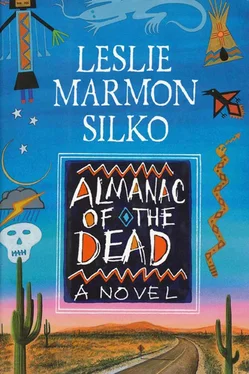
 LEAH BLUE SAW only smooth sailing once Judge Arne had dismissed the last of the injunctions and lawsuits to stop her from pumping her deep-water wells. Leah’s lawyers had argued that since the U.S. banking collapse and the crash of Arizona land prices, Arizona had been losing population. Of course the political turmoil in Mexico and the thousands of refugees massed along the border had not helped. Leah’s lawyers maintained that Arizona’s loss of population as well as the shutdown of the copper industry had suddenly changed the entire outlook for water resources in Arizona. Water was plentiful, expert witnesses had testified for Leah Blue. Of course the environmentalists and the Indians had brought in their own experts, who had testified that Leah Blue’s deep wells would destroy shallow wells throughout the valley. Leah Blue had got a kick out of watching Judge Arne pretend to weigh both arguments.
LEAH BLUE SAW only smooth sailing once Judge Arne had dismissed the last of the injunctions and lawsuits to stop her from pumping her deep-water wells. Leah’s lawyers had argued that since the U.S. banking collapse and the crash of Arizona land prices, Arizona had been losing population. Of course the political turmoil in Mexico and the thousands of refugees massed along the border had not helped. Leah’s lawyers maintained that Arizona’s loss of population as well as the shutdown of the copper industry had suddenly changed the entire outlook for water resources in Arizona. Water was plentiful, expert witnesses had testified for Leah Blue. Of course the environmentalists and the Indians had brought in their own experts, who had testified that Leah Blue’s deep wells would destroy shallow wells throughout the valley. Leah Blue had got a kick out of watching Judge Arne pretend to weigh both arguments.
